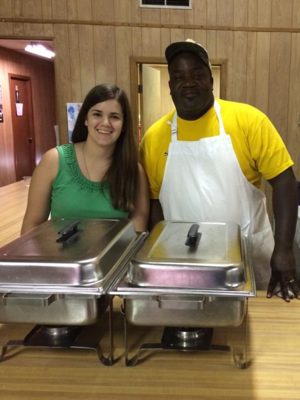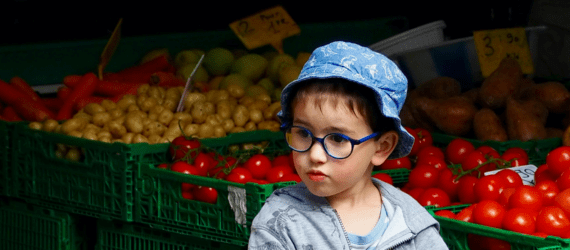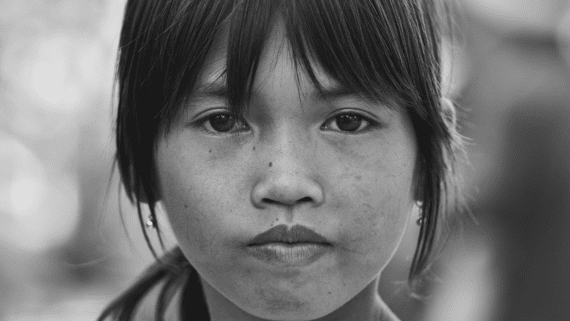By Jennifer Gonzalez
A year ago, Lane Riley took a leap of faith. She moved from her home in South Carolina to operate a summer meals site for children in rural Shaw, Miss.
One pastor helped secure a community center to serve as the site and she recruited another pastor to be the cook. She and that pastor worked together to make lunches for the children.
Last summer, roughly 30 children were fed lunch twice a week. This summer, Riley expanded the program, which is serving a lunch and snack daily to approximately 100 children. Children also participate in various activities at the site, including reading, Bible study, art, and recreation.
Because the site now serves almost three times the number of children compared to last summer, Riley needed help. So, she trained 12 high school students to be leaders for the different age groups.
“Teenagers in Shaw aren’t given a lot of opportunities for leadership development, and this is an amazing way of creating leadership skills and mentoring older kids,” Riley said.
Riley is a program director at Delta Hands for Hope, which runs the summer feeding site. The Cooperative Baptist Fellowship of Mississippi (CBFMS) is the financial sponsor of the Summer Food Service program in Mississippi.
This summer there are now five additional summer feeding sites in Mississippi run by Delta Hands for Hope. The CBFMS uses reimbursement funds it receives from the U.S. Department of Agriculture to support the feeding sites. The six sites are projected to serve about 10,000 meals this summer, Riley said.
Summer feeding sites are crucial to the health of children, especially those who come from low-income families. During the academic year, those same kids receive either a free- or reduced-price lunch at school. But the summer is different.
Accessing meals during summertime can be hard for children, especially for those living in rural areas. Lack of transportation and long distances make it difficult for them to get the meals they need to grow into healthy adults.
The need for a summer feeding site in Shaw is great. The city is located in the Mississippi Delta, where poverty is high. In fact, about half of the adult population in Shaw lives below the poverty line ($23,624 for a family of four with two children).
And roughly 70 percent of Shaw’s children live below the poverty line, according to the U.S. Census.
“Having this feeding program takes the stress off parents,” said Riley, who studied sociology and Spanish at Lander University in South Carolina. “They’ll know that their kids will be getting a meal in the summer.”
Riley first visited Shaw several years ago as part of a volunteer trip with Wilton Baptist Church in Wilton, Conn. The church’s pastor, the Rev. Dr. K. Jason Coker, is originally from Shaw and would take teams of volunteers to the city during the summer to work with children.
Riley began to visit the church after moving from South Carolina to Connecticut to work as a nanny. When the idea to start a summer feeding site in his hometown of Shaw surfaced, Coker thought Riley would be a good candidate to spearhead the project.
“There are a lot of people who are needed to create generational and systemic change, and the people of Shaw are only a small handful of people who are trying to combat hunger and poverty,” Riley said. “But by working in Shaw, with CBFMS, and many other churches and organizations, we are noticing a difference, and creating a positive environment for the kids of Shaw.”
The United States is one of the wealthiest countries in the world, but nearly 16 million children are food-insecure. Act now! Call (800/826-3688) or email your U.S. representative and your U.S. senators to close the hunger gap today.
Jennifer Gonzalez is the associate online editor at Bread for the World.
Photo: Lane Riley, left, with cook and pastor, Joe Jackson. Lane Riley for Bread for the World.



